A rare look inside China’s secret RSDL prison system
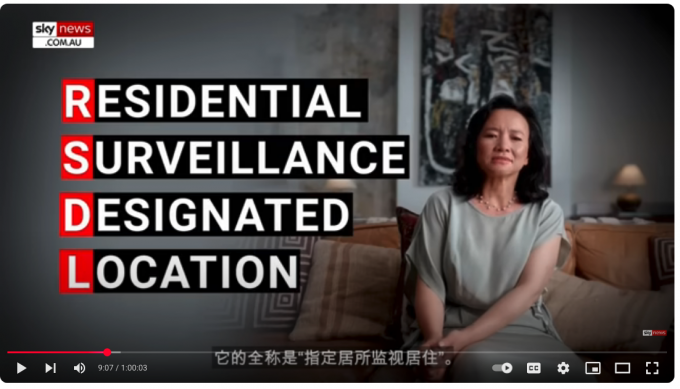
“It’s as close to dying and wanting to die as I ever got.”
A new documentary on Sky News Australia (and also posted on YouTube) offers a rare and important glimpse inside the Communist Party of China’s secret RSDL prison system.
The documentary, Cheng Lei: My Story, reveals what happened to Australian journalist Cheng Lei after she was disappeared by China’s state security police in 2020, as relations between the two countries were at a low point. She was later falsely accused of illegally supplying state secrets overseas and eventually released in 2023.
For the first six months Lei, who is also a mother of two young children, was held in incommunicado detention under Residential Surveillance at a Designated Location (RSDL).
RSDL, often used on rights defenders and political prisoners, is a system so secretive that you will not find RSDL facilities marked on maps. Neither will you see any photos of RSDL on official web pages. When you’re in RSDL, no one knows where you are except your guards and interrogators.
RSDL is basically a system of legalized black jails.
In the documentary, Lei leads the viewer on a tour of her RSDL cell (reconstructed in Australia from Lei’s memory) interspersed by powerful scenes where actors reenact the extreme surveillance she was subjected to.
In the film, she explains why they went to the trouble of making the reconstruction.
“I’d like for people to be able to see it,” says Lei. “Because nobody believes what it was like. And there’s no footage of it anywhere.”
Lei was blindfolded when she was first driven to the facility, and again six months later when she was transferred to a detention centre, so she would not be able to identify its location (read to the end to see our best guess as to the site of the facility).
You can watch the documentary here (timed to start at the section on RSDL).
The documentary adds to the growing body of evidence and documentation on the inhumane conditions of China’s secretive RSDL system.
RSDL is no ordinary detention. UN experts have described it as tantamount to torture and to enforced disappearance.
Prolonged solitary confinement is mental torture. RSDL typically lasts six months. And sometimes beyond.
Quietly weeping, Lei relates her experience of the mental torture she endured in RSDL.
“How did they come up with this? Just nothingness. Nothingness. And also a sea of pain. I had no idea what was happening or how long I would be here.”
In the film, Lei provides some key facts about how the CCP has designed RSDL:
The RSDL Cell
“The RSDL cell is about 4m by 4m. The windows are always covered by curtains. The bathroom has no door. The light stays on 24 hours a day.”
Surveillance
“You are guarded and watched at all times by two guards. One stands in front of me, one sits next to me. And they take turns with the standing and sitting.”
Rules
“I have to sit on the edge of the bed and have my hands on my lap. Not allowed to cross the ankles or cross the legs. Not allowed to close the eyes. No talking. No laughing, No sunshine. No sky. No exercise. No exercise. No colour. Just fear. Desperation, isolation and utter boredom. That’s it. Probably 13 hours a day.”
“They watch you shit, shower and sleep. You’re not allowed to talk. To make the slightest movement, you must ask for permission.”
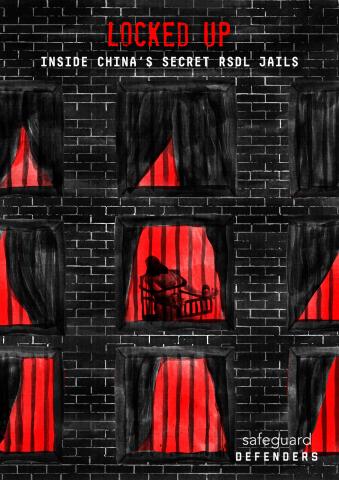
Safeguard Defenders has spent years researching RSDL– please see our illustrated RSDL guide, Locked Up: Inside China's Secret RSDL Jails, and a book of stories written by people who were disappeared into RSDL, People’s Republic of the Disappeared.
Lei’s reconstruction and description of her RSDL hell closely matches those of the more than a dozen former RSDL detainees we have interviewed. You can clearly see the similarities between our illustration of the cell from Locked Up and Lei’s reconstruction in the film.
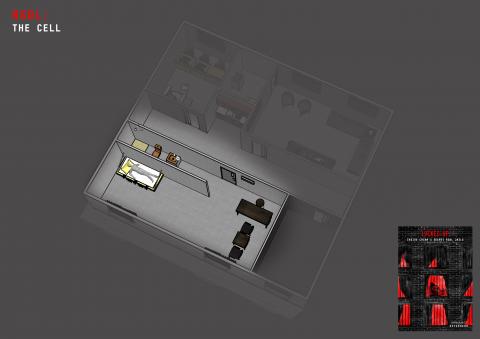
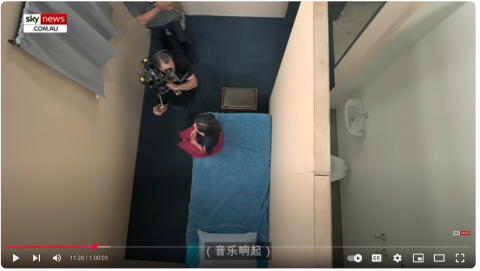
We also believe we located the RSDL facility where Lei was held in southern Beijing (see map below). It is the same facility that Safeguard Defenders’ co-founder and director Peter Dahlin was held (2016) and where Michael Kovrig was kept (2018).
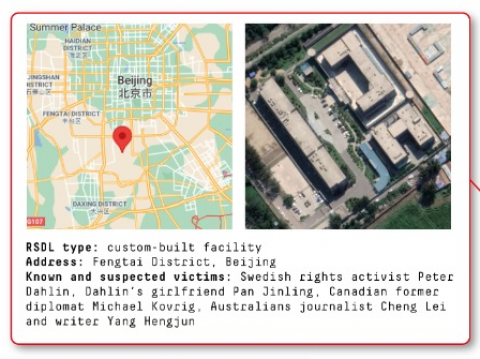
Locked Up is available free here. You can support Safeguard Defenders’ human rights work by purchasing a copy of People’s Republic of the Disappeared now in its second edition here.
In addition to the documentary, Lei has just published her account of her wrongful arrest and years behind bars in China: Cheng Lei: A Memoir of Freedom.


